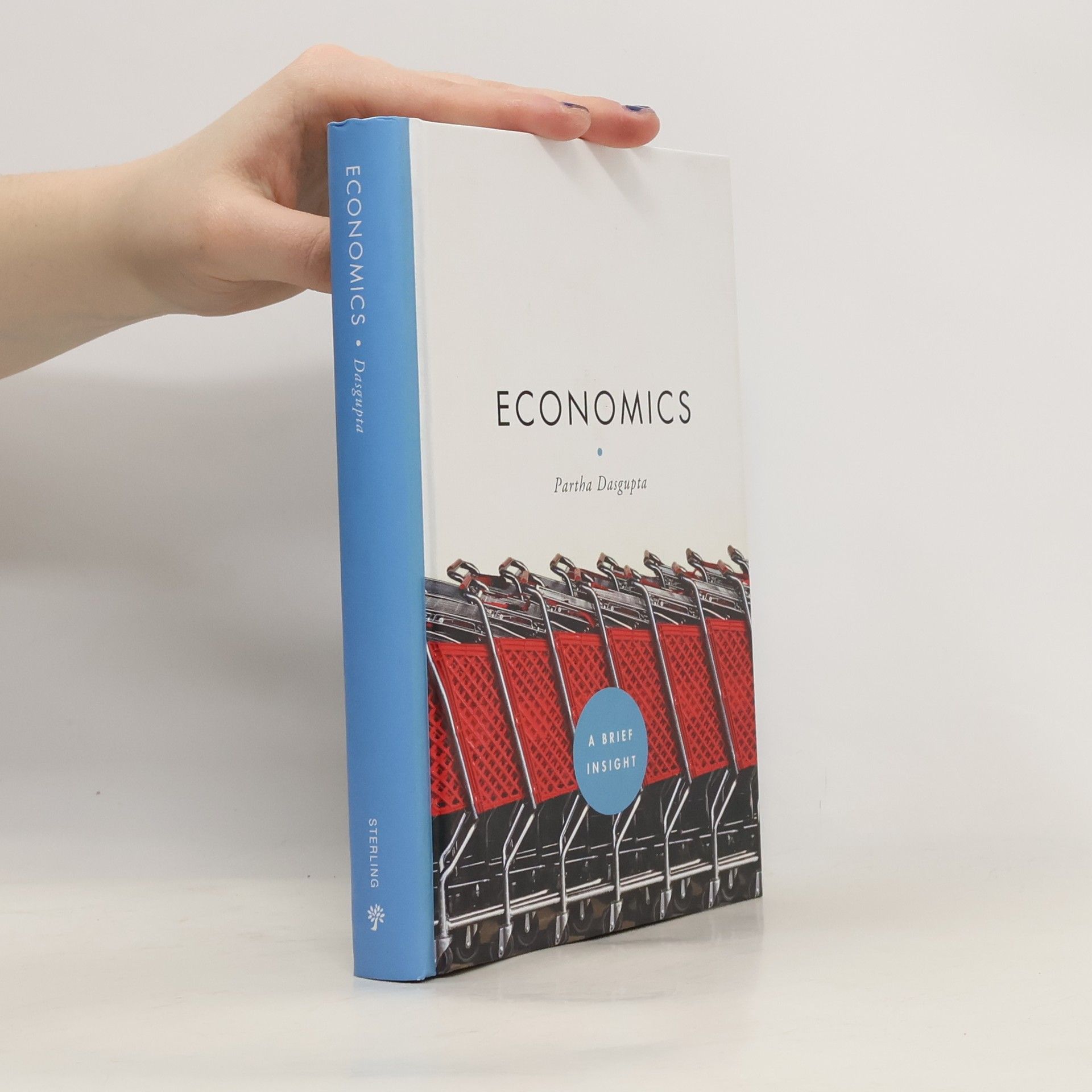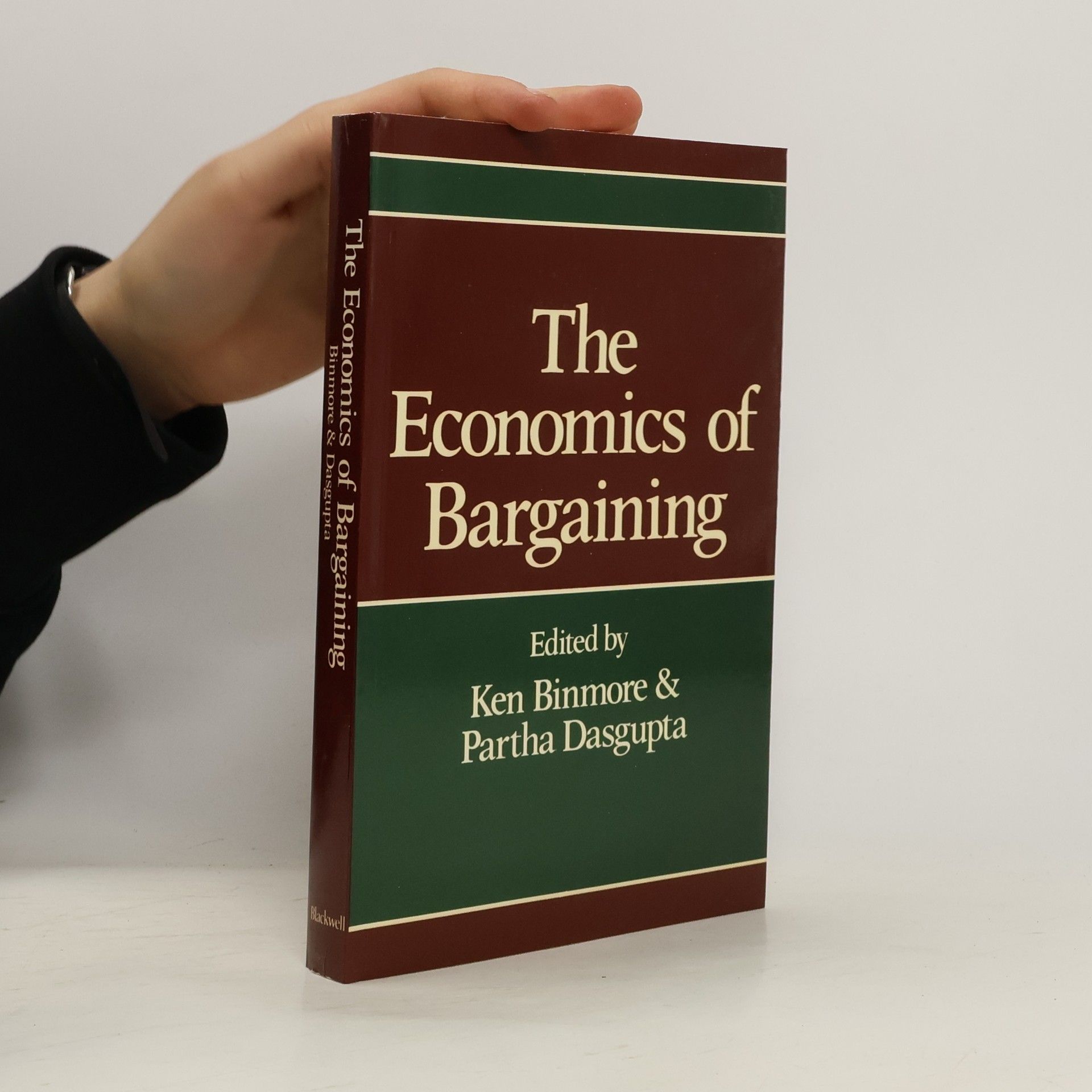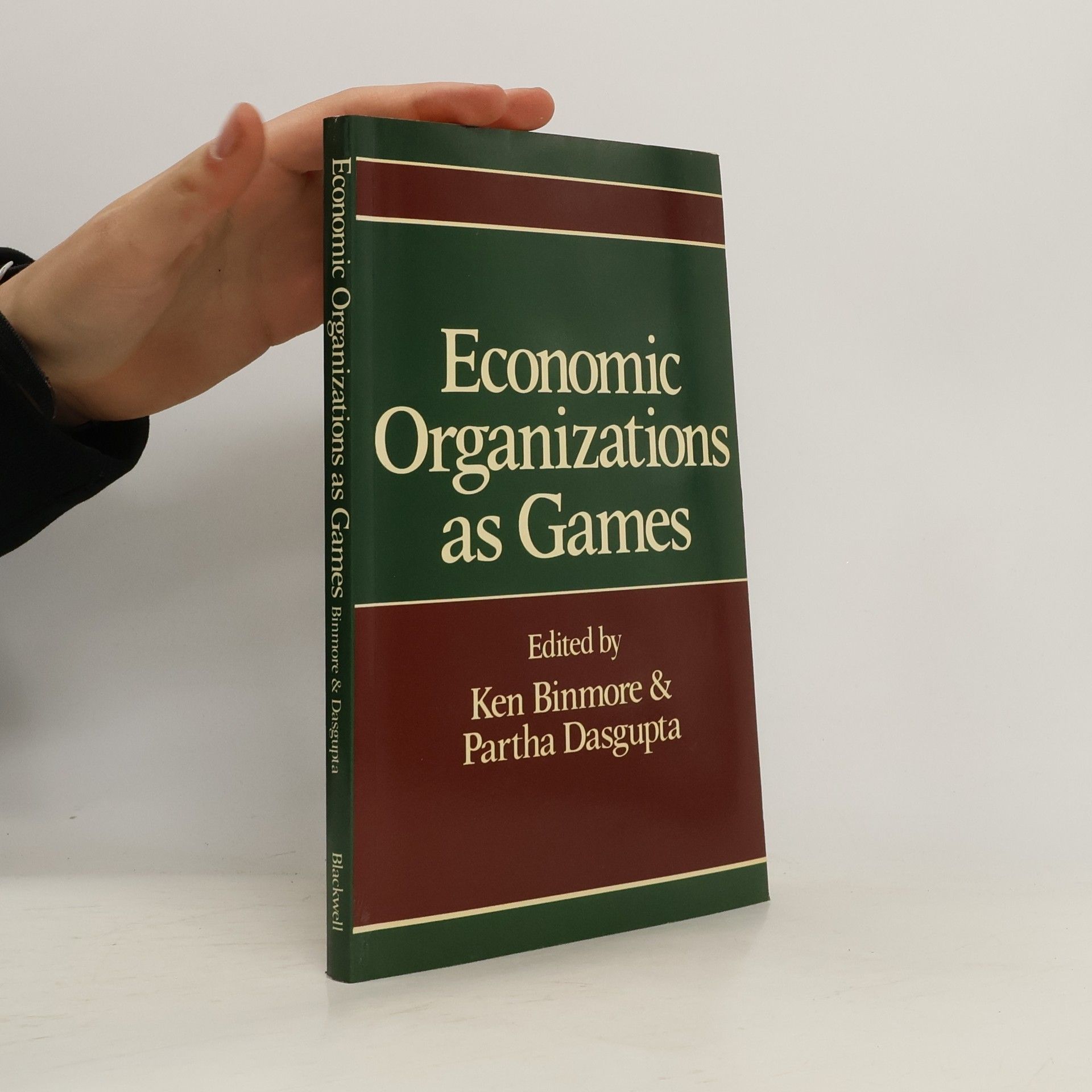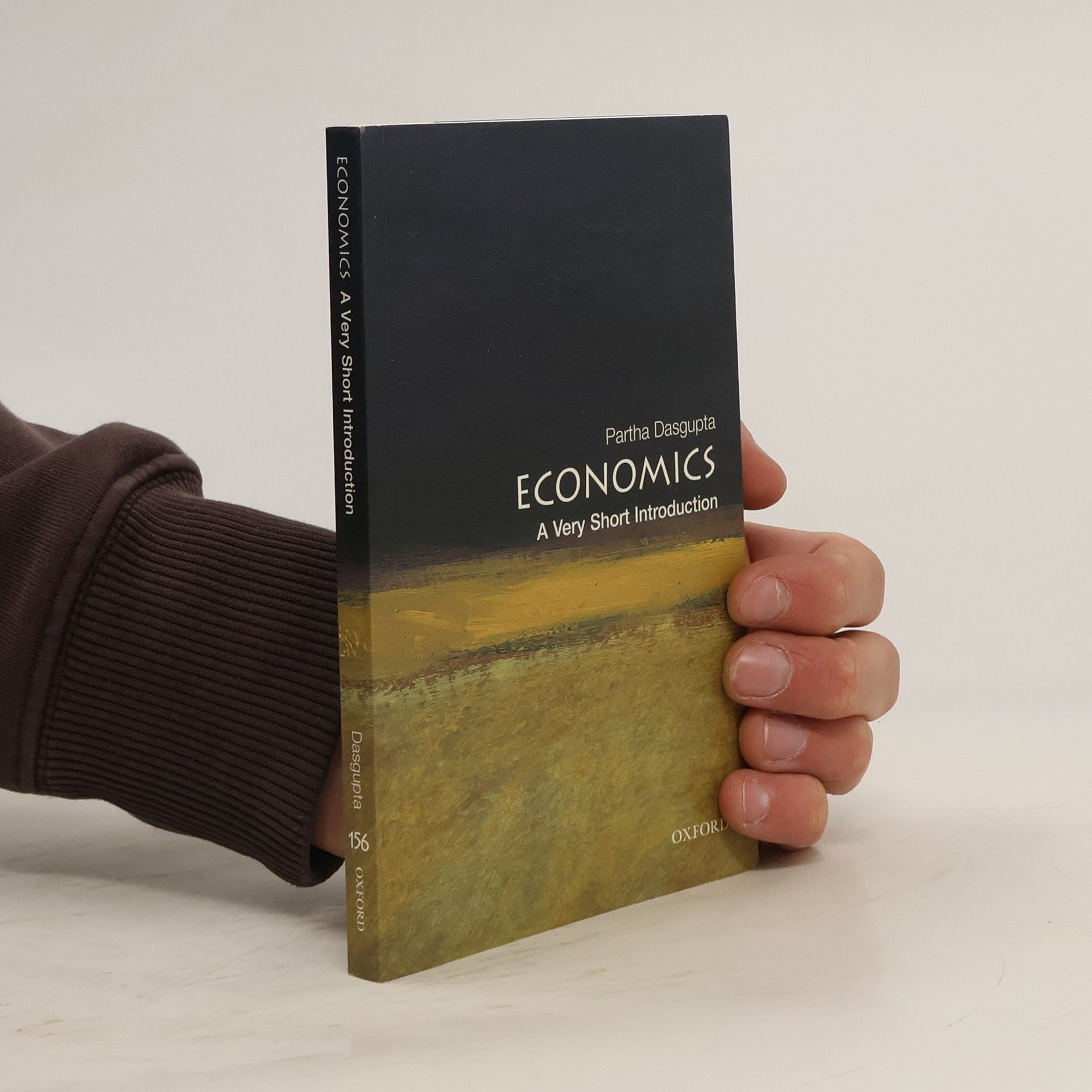Economics a very short introduction
- 172 stránek
- 7 hodin čtení
Here Partha Dasgupta, an internationally recognized authority in economics, presents readers with a solid introduction to its basic concepts, including efficiency, equity, sustainability, dynamic equilibrium, property rights, markets, and public goods. Throughout, he highlights the relevance of economics to everyday life, providing a very human exploration of a technical subject. Dasgupta covers enduring issues such as population growth, the environment, and poverty. For example, he explores how the world's looming population problems affect us at the local, national, and international level.Economics has the capacity to offer us deep insights into some of the most formidable problems of life. Here, Dasgupta goes beyond the basics to show it's innate effects on our history, culture, and lifestyles.About the Series: Combining authority with wit, accessibility, and style, Very Short Introductions offer an introduction to some of life's most interesting topics. Written by experts for the newcomer, they demonstrate the finest contemporary thinking about the central problems and issues in hundreds of key topics, from philosophy to Freud, quantum theory to Islam.





